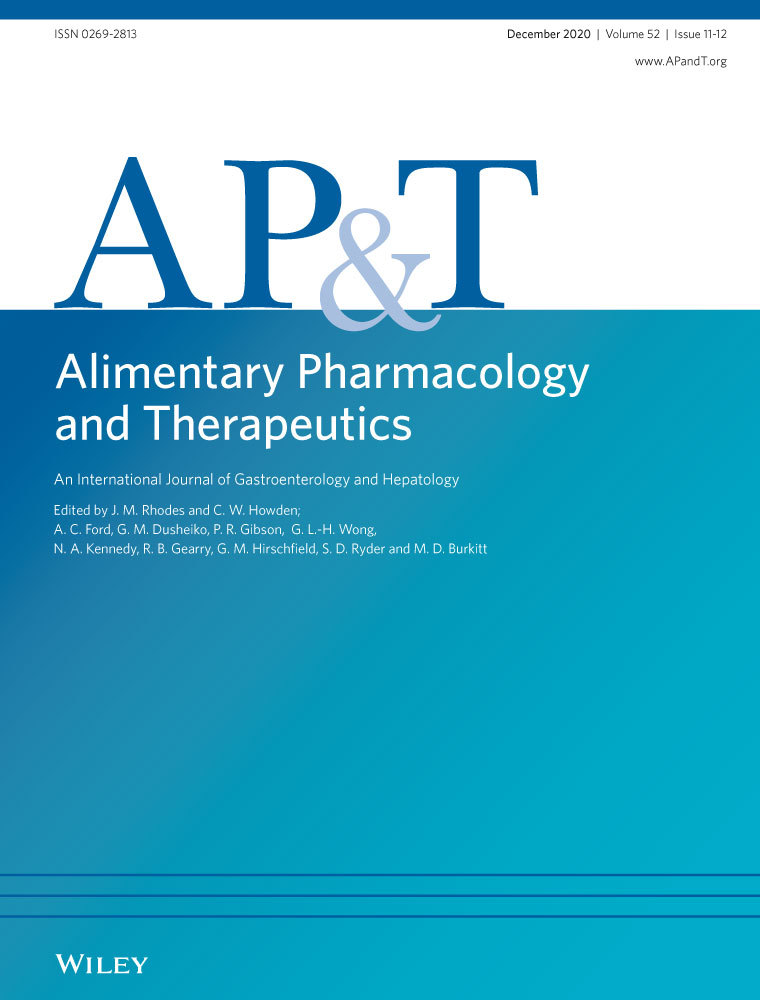Editorial: the microbiome, aspirin and colorectal cancer—authors' reply
Abstract
LINKED CONTENT
This article is linked to Prizment et al and O’Grady & Quigley papers. To view these articles, visit https://doi.org/10.1111/apt.16013 and https://doi.org/10.1111/apt.16071
We appreciate the insightful editorial by Drs. O'Grady and Quigley1 about our double-blind, placebo-controlled, randomised study in 50 healthy volunteers. Our study showed a potentially beneficial effect of aspirin on certain gut microbiome taxa in the direction opposite to inflammation and colorectal cancer (CRC) development.2 In line with our study, a recent animal study demonstrated that stool samples from mice fed with aspirin had an increase in anti-inflammatory bacteria and reduction in pro-inflammatory bacteria.3 Also consistent with our findings, a recent cross-sectional study did not detect a difference in microbiome diversity, but did find a difference in individual taxa in 20 individuals who did and did not receive combined anti-platelet treatment including aspirin and clopidogrel.4
We agree that some observed changes in our study might be explained by diet or use of drugs, other than aspirin, due to the differential changes in aspirin and placebo arms during intervention. However, this was a blinded, randomised study of healthy participants 50-75 years old; subjects were asked not to make major changes, and they did not self-report changes during interviews conducted every three weeks. Thus, we do not anticipate substantial differential alterations in lifestyle or comorbidities over a 6-week intervention.
The editorial made an important point about studying salivary (in addition to gut) microbiota in individuals at CRC risk who would benefit from aspirin chemoprevention. We strongly agree about the relevance of oral microbiota. Compared to healthy controls, the oral microbiome in patients with CRC may have a higher relative abundance of taxa associated with inflammation (such as Fusobacterium, Peptostreptococcus, and Porphyromonas).5, 6 Also, in rats, aspirin use was associated with changes in oral microbiome taxa.7 Our unpublished results on aspirin and oral microbiome support those findings.
We also agree that longer and larger studies are required. Such studies should include individuals at high CRC risk and use advanced methods for microbiome analysis, such as metagenomics and metabolomics. Also, such studies should account for a major limitation of long-term aspirin use—namely the high risk of gastrointestinal bleeding. For prolonged use, aspirin should be combined with drugs or food additives that could mitigate its adverse effects in the upper gastrointestinal tract. Previous studies proposed two strains that may reverse aspirin-induced enteropathy, including Bifidobacterium breve (BIF195)8 and Lactobacillus gasseri (OLL2716).9 Furthermore, when designing future trials, researchers should account for the latest findings from animal and human studies, because this field is developing rapidly. For instance, Zhao et al3 not only showed that aspirin affects gut microbiome, but also found that certain bacteria––Lysinibacillus sphaericus––degrade aspirin and impair its anti-cancer effect. That finding implies that aspirin would not be useful among those with a higher abundance of Lysinibacillus sphaericus. Therefore, the main goals of future trials should be to determine the optimal regimen for aspirin use alone and combined with probiotics, and to identify individuals who would benefit most from aspirin chemoprevention but have the fewest side effects.
ACKNOWLEDGEMENT
The authors' declarations of personal and financial interests are unchanged from those in the original article.2




